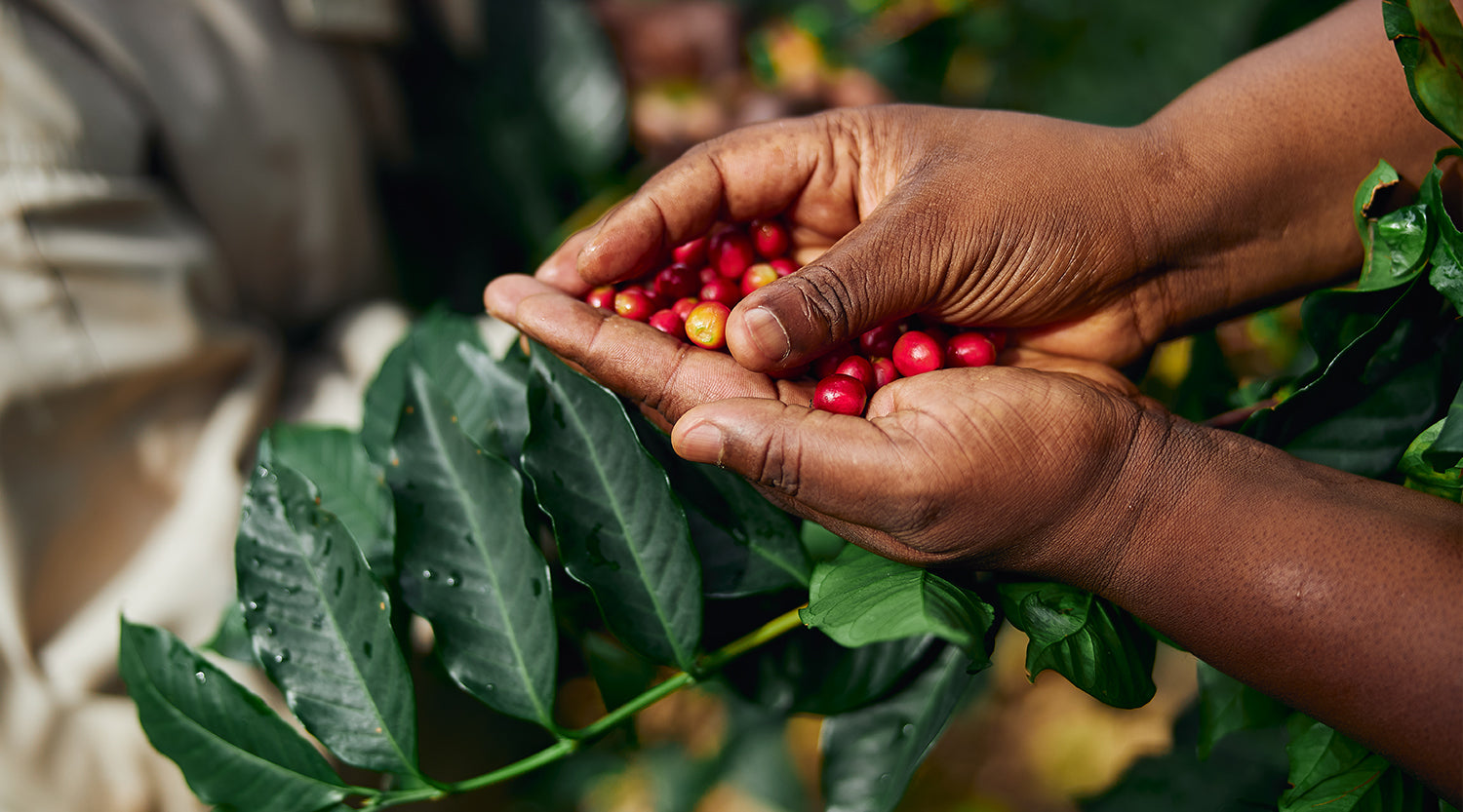Exploring Ethiopia, the Birthplace of Arabica Coffee

Long before adventurers sipped espressos before quests and kobolds learned to roast beans over enchanted flames, coffee had already taken root in the wild, ancient highlands of Ethiopia. This isn’t just a tale passed down by the village barista, it’s one of the most enduring legends in all of coffeedom.
So gather 'round, brew-loving wanderers. Today, we travel back to the beginning of it all. To a place where legend and agriculture intertwine. A place where Arabica coffee was born.
Where It All Began: Coffee’s Mythic Roots

As any good lorekeeper will tell you, Ethiopia isn’t just a major player in the global coffee trade, it’s the birthplace of Arabica coffee itself. Legend speaks of a goat herder named Kaldi, who noticed his goats frolicking with unnatural enthusiasm after nibbling bright red cherries from a mysterious tree. Curious, Kaldi tried them himself, and the rest is the stuff of roasting history.
While the tale is steeped in myth, the truth is no less magical. Ethiopia’s wild coffee forests, particularly those in the Kaffa region, are where the Arabica species of coffee first emerged. To this day, coffee still grows wild in parts of the country, making Ethiopia not just a producer, but a living, breathing archive of coffee’s natural history.
What Makes Ethiopian Coffee So Special?
Ethiopian coffee isn’t just important because it’s the original. It’s also known for being uniquely flavorful and wildly diverse. This is partly due to the wide range of microclimates and elevations in the country, and partly due to how the coffee is processed.
Many Ethiopian coffees are naturally processed (dried with the cherry still on the bean), which imparts a vibrant, fruity sweetness. Others are washed, leading to a cleaner, brighter cup.
Depending on the region and method, Ethiopian coffees can boast notes of:
- Berries and florals (think jasmine, blueberry, strawberry)
- Citrus and stone fruit
- Wine-like acidity
- Tea-like body
Each cup is like a potion brewed by a different druid, familiar in structure, but infinitely complex in flavor.
A Culture Steeped in Coffee

In Ethiopia, coffee isn’t just a drink. It’s a sacred tradition. The Ethiopian coffee ceremony is a cornerstone of hospitality, family, and social life. Green beans are roasted in front of guests, ground with a mortar and pestle, and brewed in a clay pot called a jebena.
The process is as much about connection as it is about coffee. You don’t rush a coffee ceremony. You sit, sip, and soak in the moment. It’s a reminder that coffee, at its best, isn’t just fuel. It’s an experience.
Ethiopia’s Impact on the Coffee World
Today, Ethiopia remains one of the top coffee-producing countries in the world. Hundreds of thousands of smallholder farmers tend the land and harvest beans, often by hand, in ways that have remained unchanged for centuries.
But beyond volume, Ethiopia’s biggest contribution is diversity. With thousands of heirloom varietals (some of which haven’t been genetically identified yet), Ethiopian coffee is a treasure trove of flavors that simply can’t be replicated elsewhere.
Roasters worldwide revere Ethiopian beans not just for their quality, but for the mystery they hold.
Enter the Druid: An Homage to Ethiopian Coffee

At Dragon Roast Coffee, we knew that if we were going to honor the birthplace of coffee, we needed a roast as thoughtful and enchanting as Ethiopia itself. And so, Druid was born.
Crafted from single-origin Ethiopian beans, Druid is a light roast that celebrates the fruit-forward elegance and floral aromas that Ethiopian coffees are known for. It's smooth yet complex, with whispers of blueberries, hints of floral flavor, and honeyed citrus. A brew that invites quiet contemplation and confident spellcasting.
Whether you're preparing for a late-night campaign or a sunrise ritual, Druid channels the spirit of Ethiopia in every sip. It’s the kind of coffee that feels like a secret whispered through ancient trees.
Taste the History of Arabican Coffee
The next time you brew a cup, take a moment to honor the rich, resilient roots of the coffee world. Ethiopia isn’t just the start of coffee’s story. It’s an ever-evolving chapter that continues to shape what’s in your cup today.
Let Druid be your guide if you want to taste that legacy for yourself. Ethically sourced, masterfully roasted, and worthy of the highlands that birthed the bean. Brew boldly, friends. The forest remembers.





